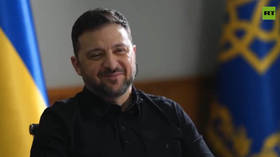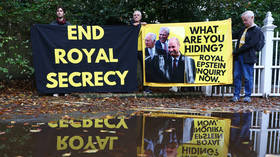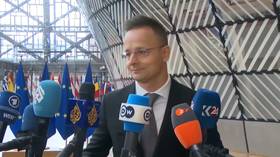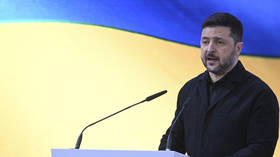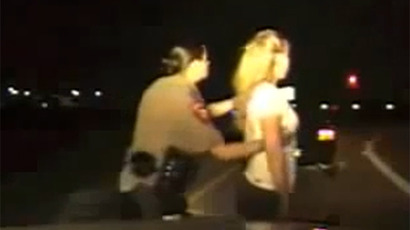First Amendment rights not enough to stop feds from prosecuting polygraph operators
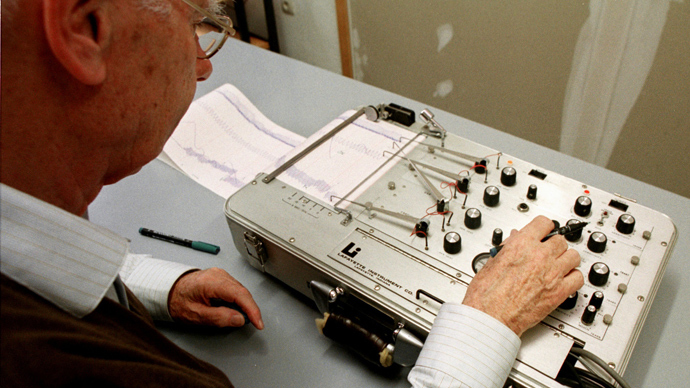
US federal officials are investigating polygraph teachers who supposedly help job applicants fib their way through government lie detector tests. The criminal inquiry is seen as the Obama administration's latest attempt to preserve government secrecy.
Law enforcement has targeted at least two people who claim that
their methods of breath control, muscle tensing, facial tics, and
other techniques are reliable enough that an individual with a
nefarious background will be capable of gaining employment with
the US government.
Investigators accessed business records belonging to the two men,
according to a McClatchy report, and then used those documents to
identify roughly 5,000 people who sought advice on how to beat
the test. Of that sum, 20 people applied for government and
federal contracting jobs. At least ten of the 20 applicants were
eventually hired by various federal entities, including the
National Security Agency.
The machines were introduced in the early 20th Century, quickly
gaining favor with police who observed a suspect’s physiological
responses – including blood pressure, pulse, and perspiration –
when questioning an individual about a crime. Multiple research
studies held over the past 50 years have debated the polygraph’s
dependability, though, with a 1998 Supreme Court ruling
declaring, “There is simply no consensus that polygraph
evidence is reliable.”
Consequently, because the polygraph itself is thought to be
nonsense, experts say anyone who purports their ability to beat
it is themselves lying.

“Nothing like this has been done before,” US Customs and
Border Protection official Josh Schwartz said during a speech at
the professional polygraphers’ conference, as quoted by
McClatchy. “Most certainly our nation’s security will be
enhanced. There are a lot of bad people out there…this will help
us remove some of those pests from society.”
Federal authorities, McClatchy reported, have already arrested
Doug Williams - a former polygrapher with the Oklahoma City
Police Department who wrote a book on the subject - and Chad
Dixon of Indiana, who was the inspiration for the book. Sources
told the news agency that prosecutors will attempt to sentence
Dixon to two years in prison for wire fraud and obstructing an
agency proceeding.
Critics assert that there is simply no crime in teaching methods
to defeat the polygraph. Self-proclaimed experts freely advertise
their services online, in books, and on television, and have
never had the need to hide their services. That is not to mention
the First Amendment legal battle over impeding free speech, which
government prosecutors would surely face in court.
“If someone stabs a voodoo doll in the heart with a pin and
the victim they intended to kill drops dead of a heart attack,
are they guilty of murder?” Gene Iredale, an attorney for one
of the defendants, asked McClatchy. “What if the person who
dropped dead believed in voodoo?”
“These are the types of questions that are generally debated in
law school, not inside a courtroom,” Iredale continued.
“The real question should be: ‘Does the federal government
want to use its resources to pursue this kind of case?’ I would
argue it does not.”
Dixon, 34, refused to elaborate on his legal situation but told
McClatchy that he began working as a polygrapher because he could
not find work as an electrical engineer. The father of four
children has seen his home go into foreclosure because of the
investigation and, despite having no criminal record, he expects
to serve prison time.
“My wife and I are terrified,” he said. “I stumbled
into this. I’m a Little League coach in Indiana…never in my
wildest dreams did I somehow imagine I was committing a
crime.”


